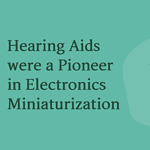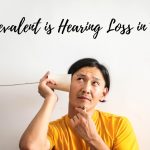Each May, ASHA (The American Speech-Language-Hearing Association) celebrates Better Hearing and Speech Month (BHSM). The last year of quarantine has had many of us removed from our normal social and work routines, and this year’s BHSM theme speaks to that: “Building Connections.” As vaccination rates continue to increase, life will be slowly returning to something like “normal” over the summer months, and building connections is going to be important to almost everyone as we start venturing back out into the world on a regular basis.
BHSM is divided into four sub-themes; one for each week:
- Week 1: Untreated Hearing Loss in Adults
- Week 2: Early Intervention & COVID-19
- Week 3: The Role of Health Care SLPs (speech-language pathologists) in COVID-19 Recovery
- Week 4: Summer Skill Building, Hearing Protection for School-Aged Children
More information is available at ASHA’s website. There are press releases related to each weekly theme, including up-to-the-minute information about the state of hearing health in the U.S. today.
COVID-19 Has Made Hearing Loss More Difficult
The COVID-19 pandemic changed the way we related in public in ways that have been especially difficult for those with hearing loss. Face masks muffle voices and make lipreading impossible, while social distancing also reduces the effective volume of a speaker’s voice. Even under normal circumstances, mild hearing loss introduces communication issues. For those who may have been concerned about their hearing prior to one year ago, precautions related to the pandemic have made understanding speech even harder.
Mild hearing loss poses special problems in group situations, or where background noise is at higher levels. For those with mild hearing loss, social fatigue sets in earlier than they may have been accustomed to. This is because listening to speech with hearing loss is exhausting. We may only catch bits and pieces of every sentence that someone utters, which requires a lot of background work from our brains as we use context clues and guesses to piece a meaning together. The result is fatigue and, for most, reduced enjoyment of the social situation.
Over time, we begin to learn that social events are less fun, and we may start to shy away from them. This is why hearing loss frequently leads to loneliness, social isolation and depression. The situation can get worse as hearing loss progresses, as it tends to do. Sometimes audiologists talk about the “cascade of negative effects” that untreated hearing loss can bring with it. Luckily, the situation doesn’t have to go that far.
Good News for Those with Hearing Loss
While hearing loss does tend to progress over time, it normally plateaus at a certain point. Most hearing loss does not progress in a linear fashion all the way to deafness, but stops after a while. So, while hearing loss can be worrisome, you generally do not need to be concerned that you will lose all of your hearing eventually.
Hearing aids are the best way to treat hearing loss and ensure that your lifestyle doesn’t need to change simply because you’re having hearing issues. There are hearing aids available for every need and lifestyle, and they’re better than they’ve ever been. They now integrate seamlessly with smartphones and other technologies to improve hearing during phone calls, online video meetings, and with your favorite entertainment options. You can even have your fitment adjusted right through an integrated smartphone app, meaning fewer visits to the clinic.
Regular Hearing Tests
The Better Hearing Institute and ASHA, both non-profit organizations, recommend getting a hearing test once every decade until age 50, and once every three years after that. Those with higher-risk jobs or medical histories should be tested even more frequently. Regular hearing tests are the best way to make sure that you catch hearing loss early, so you can make the adjustments that might help you stop or slow the progress of your hearing loss. If hearing aids are recommended for you, it’s important to start wearing them as soon as possible.
Hearing loss is undertreated in America today, but ASHA’s goal during BHSM—and throughout the rest of the year—is to make sure that we become more aware of just how detrimental untreated hearing loss can be. It can affect us in ways we might not realize, so don’t put off getting hearing aids once they’re recommended.






